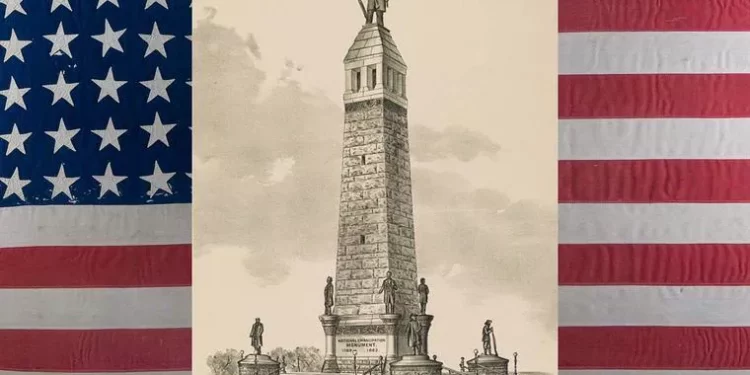But the Confederacy would end in ruins by 1865, and the United States would triumph, because Black Americans — making up 10% of the Union Army and suffering 10% of total battlefield casualties — would help turn the tide of the U.S. Civil War.
President Abraham Lincoln, at the strong urging of abolitionists like the Black orator Frederick Douglass, agreed in 1863 to allow the enlistment of Black Americans for combat regiments. But everything depended on how the first Black Americans proved their valor in battle and whether Black Americans would join in the overwhelming numbers needed to win the war.
Cailloux responded to the call to form one of the first Black combat regiments in the Union Army, the First Louisiana Native Guard. Moreover, this Catholic — a married father who owned a cigar business, supported the charitable works of the Church, and proudly called himself the “Blackest man in New Orleans” — was a commissioned officer. So much responsibility rested on his decisions; he doubtless knew his conduct in the heat of battle would become the measure by which the fighting capability of Black Americans would be judged.
Cailloux and his men met their finest hour in the bitter siege of Port Hudson, Louisiana. He was ordered to lead the First Louisiana Native Guard in an assault on entrenched Confederate fortifications — practically a suicide mission in the face of artillery and sharpshooters. In his charge, Cailloux never wavered, urging his men onward in both French and English as the bullets pierced his flesh, until finally an artillery shell struck him down. Even then, he managed to give one final order for his lieutenant to take charge.
The news of Cailloux’s undaunted heroism in the face of certain death electrified the country, and the significance of his pivotal sacrifice as a Black officer, soldier, and free man led African Americans to enlist in droves into the Union Army. With the valiant sacrifices of the Black volunteers of the 54th Massachusetts Infantry at the Battle of Fort Wagner following Cailloux’s death in July 1863, the U.S. had its answer: Black Americans would fight with courage and distinction for the union and freedom.
Over the next two years, Gen. Robert E. Lee would see the ideology of the Confederacy unravel before his very eyes. White and Black Americans together in the Union Army fought his Army of Northern Virginia, and with their combined strength, finally defeated Lee and forced his surrender at Appomattox Court House.
Credit: Source link




